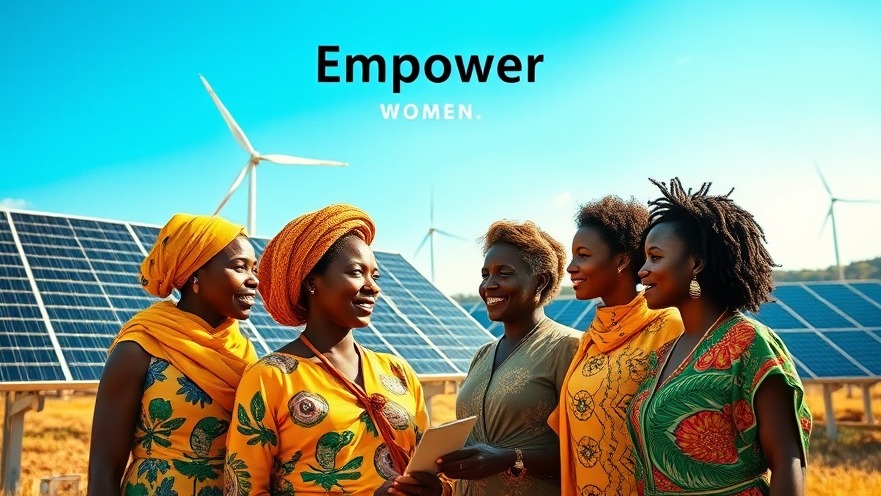
Enhancing Gender Equality in Africa's Renewable Energy Sector
The upcoming launch of the Country Diagnostic Studies on Gender and Renewable Energy by the African Development Bank (AfDB) marks a significant stride towards integrating gender perspectives within the renewable energy sector across six African nations: Ghana, Liberia, Mali, Lesotho, Madagascar, and Malawi. Set for 30 June 2025, this virtual event aims to galvanize discussions around the practical benefits of renewable energy access for women, tackle existing financing barriers, and promote inclusive policy frameworks that favor gender equality.
The Role of Gender in Energy Access
Access to energy is a fundamental building block for fostering socio-economic development, yet women remain disproportionately affected by energy poverty. This disparity inhibits their entrepreneurial potential and hinders overall economic growth. The studies are designed to provide country-level data that highlight the challenges and potential opportunities for women in the renewable energy landscape. It is vital for policymakers to recognize that integrating gender considerations into energy systems can catalyze broader developmental outcomes.
Building Sustainable Futures through Inclusive Policies
The diagnostic studies will serve as a critical resource for understanding the intersections of gender and energy access. They aim to unearth actionable insights that can inform energy policy discussions at both regional and national levels. In particular, the event will foster dialogue among key stakeholders including governments, multilateral organizations, and civil society, promoting collaborative efforts to address systemic barriers that women entrepreneurs face in the energy sector.
Transformative Impact on Economic Upliftment
Incorporating gender considerations into renewable energy initiatives can lead to transformative economic benefits, enhancing women's roles as agents of change. Successful integration reduces reliance on fossil fuels while also contributing to mitigation strategies against climate change, making it both an environmental and economic imperative. By supporting female entrepreneurs in renewable energy, countries can drive growth that benefits entire communities while promoting sustainable practices.
The upcoming discussions will not only highlight the pressing need for gender-inclusive policies but also aim to equip stakeholders with the necessary tools to create systemic change. For business leaders and policymakers deeply invested in Africa's economic future, participating in these conversations is crucial.
Act Now: Don’t miss this opportunity to contribute to a future where gender and renewable energy go hand in hand. Join the launch on June 30 and be part of the transformative dialogue!
 Add Row
Add Row  Add
Add 


Write A Comment